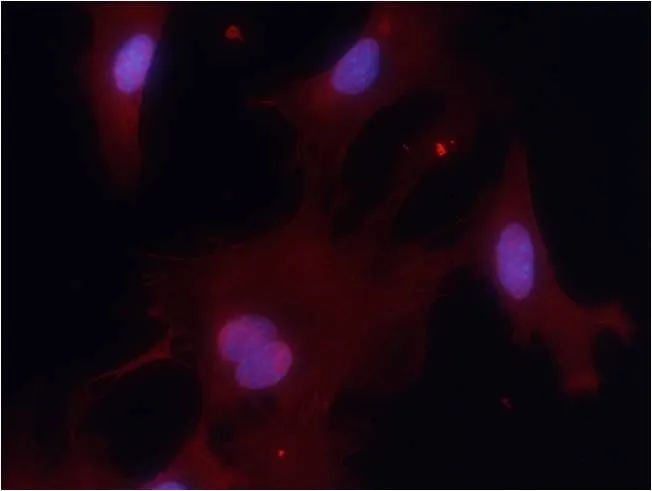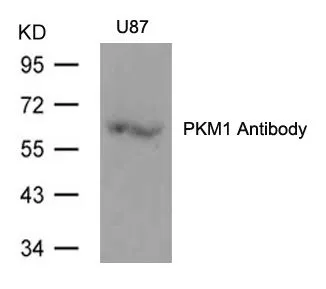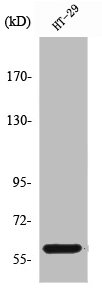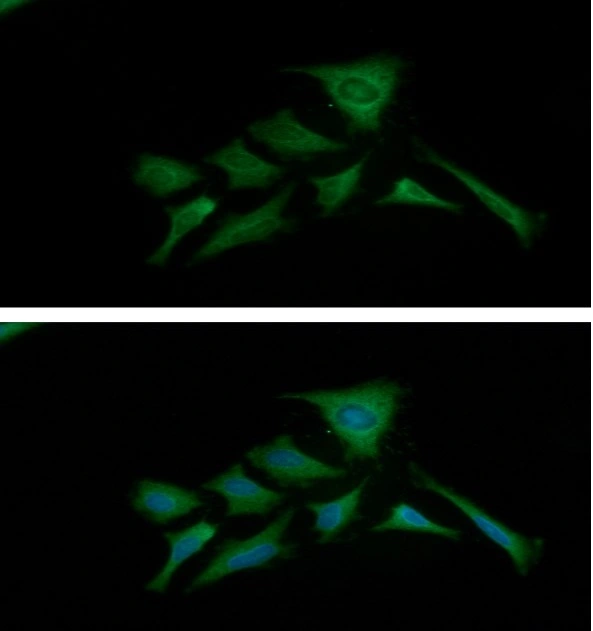
ICC/IF analysis of methanol-fixed MEF cells using GTX50734 PKM1 antibody.
PKM1 antibody
GTX50734
ApplicationsImmunoFluorescence, Western Blot, ImmunoCytoChemistry
Product group Antibodies
TargetPKM
Overview
- SupplierGeneTex
- Product NamePKM1 antibody
- Delivery Days Customer9
- Application Supplier NoteWB: 1:1000. *Optimal dilutions/concentrations should be determined by the researcher.Not tested in other applications.
- ApplicationsImmunoFluorescence, Western Blot, ImmunoCytoChemistry
- CertificationResearch Use Only
- ClonalityPolyclonal
- Concentration1 mg/ml
- ConjugateUnconjugated
- Gene ID5315
- Target namePKM
- Target descriptionpyruvate kinase M1/2
- Target synonymsCTHBP, HEL-S-30, OIP3, PK3, PKM2, TCB, THBP1, p58, pyruvate kinase PKM, OPA-interacting protein 3, PK, muscle type, cytosolic thyroid hormone-binding protein, epididymis secretory protein Li 30, pyruvate kinase 2/3, pyruvate kinase isozymes M1/M2, pyruvate kinase muscle isozyme, pyruvate kinase, muscle, threonine-protein kinase PKM2, thyroid hormone-binding protein 1, thyroid hormone-binding protein, cytosolic, tumor M2-PK, tyrosine-protein kinase PKM2
- HostRabbit
- IsotypeIgG
- Protein IDP14618
- Protein NamePyruvate kinase PKM
- Scientific DescriptionThis gene encodes a protein involved in glycolysis. The encoded protein is a pyruvate kinase that catalyzes the transfer of a phosphoryl group from phosphoenolpyruvate to ADP, generating ATP and pyruvate. This protein has been shown to interact with thyroid hormone and may mediate cellular metabolic effects induced by thyroid hormones. This protein has been found to bind Opa protein, a bacterial outer membrane protein involved in gonococcal adherence to and invasion of human cells, suggesting a role of this protein in bacterial pathogenesis. Several alternatively spliced transcript variants encoding a few distinct isoforms have been reported. [provided by RefSeq, May 2011]
- Storage Instruction-20°C or -80°C,2°C to 8°C
- UNSPSC12352203
References
- Linc-ROR confers gemcitabine resistance to pancreatic cancer cells via inducing autophagy and modulating the miR-124/PTBP1/PKM2 axis. Li C et al., 2016 Dec, Cancer Chemother PharmacolRead more




